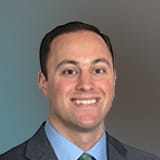Last week, Texas, Oklahoma, and Alaska announced plans to resume elective surgeries.
On Monday, April 27, Pennsylvania’s Secretary of Health announced that surgeries could resume immediately as long as they don’t jeopardize staff or patient safety, or the ability of hospitals and facilities to respond to COVID-19.
Yesterday, April 29, Virginia Governor Ralph Northam announced that non-emergency surgeries and dental procedures could resume when the state’s public health order expires on Friday.
In welcome news for many physicians and patients, states all across the country are announcing plans to resume elective surgeries and procedures.
The Shutdown
In mid-March, as the number of confirmed COVID-19 cases accelerated, so did fears regarding patient safety, hospital capacity, and the availability of medical equipment. In response, the Centers for Medicare & Medicaid Services (CMS) issued federal guidance on March 18 to limit non-essential surgeries and medical procedures during the outbreak.
Concurrently, most state governments issued their own legal orders to limit elective procedures. Beyond state and federal guidelines, many medical specialty associations and societies, health systems, hospitals, and physician practices instituted their own administrative and clinical policies to restrict elective procedures due to COVD-19.
As a result, elective procedures nationwide essentially grinded to a halt for over a month. Many surgeons and healthcare workers sat idle, businesses suffered, and patients delayed care.
The Reopening
Now, with COVID-19 cases and hospitalizations in many states on a downward trajectory, attention has rapidly shifted towards establishing new policies to allow elective surgeries and procedures to resume.
Under the President’s three-phased plan for “Opening Up America Again”, outpatient elective surgery can resume in Phase One. Along with the reopening of schools and bars, the return of inpatient surgery is tied to Phase Two. Advancing “stages” in the plan requires a 14-day downward trajectory of cases while maintaining sufficient hospital capacity and testing capability for the virus.
At each stage, new CMS guidelines recommend a gradual transition and encourage providers to coordinate with local and state public health officials, and to review the availability of personal protective equipment (PPE) and other supplies, workforce availability, facility readiness, and testing capacity when making the decision to resume care. These CMS guidelines (which were released on April 19) also include broader guidance on providing essential non-COVID-19 care to patients without symptoms of the virus in areas with low and stable incidence of it.
The New Normal
Following the release of these guidelines, last week the White House Coronavirus Task Force Chair, Vice President Mike Pence said directly, “we are now encouraging states to restart elective surgeries wherever possible, either statewide or on a county-by-county basis.”
With the new federal guidance in hand and the VP’s “okay” in the news, some state governments immediately began moving to lift restrictions on elective surgeries.
These policies have and will continue to vary state-by-state and in some cases county-by-county. For example, as New York city and its suburbs continue to battle the coronavirus, yesterday New York state announced that 35 of its 62 counties can resume elective outpatient treatments.
Beyond state government actions, hospitals and ambulatory surgery centers (ASCs) are setting their own policies, with social distancing, PPE, testing, patient safety, and capacity issues of top concern. Different considerations are also being made across different physician specialties and within the same specialty for different procedures. Most organizations also concede that their policies will evolve as the situation does in the coming weeks and months.
As a result, even though the law may now allow elective surgeries to resume, an immediate return to business as usual is unlikely. Nonetheless, across the industry- for many surgeons, physicians, healthcare workers, and patients- elective surgery has returned.
Meet NextGen Ambient Assist, your new AI ally that generates a structured SOAP note in seconds from listening to the natural patient/provider conversation.
Read Now